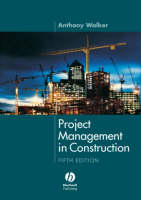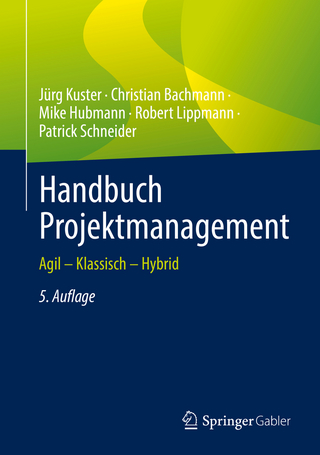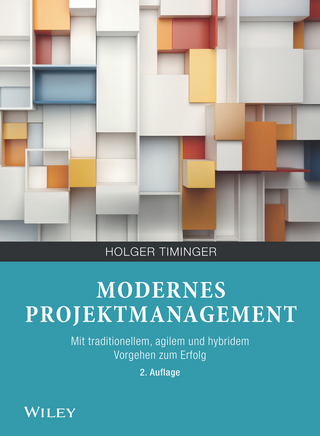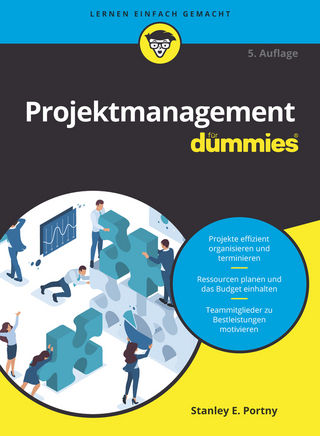
Project Management in Construction
Wiley-Blackwell (an imprint of John Wiley & Sons Ltd) (Verlag)
978-1-4051-5824-4 (ISBN)
- Titel erscheint in neuer Auflage
- Artikel merken
Anthony Walker holds the title of Professor Emeritus in Real Estate and Construction at the University of Hong Kong. He is a chartered surveyor and has worked in Britain, the Middle East and the Far East.
1 Relevance of organisation structure. Introduction. Management and organisation. Definition of construction project management. Objectives and decisions. The project management process and the project manager. Projects, firms and clients. The contribution of organisation structure. Organisation theory and project organisations. Project organisation in context. 2 Evolution of project organisation. Introduction. Origins. A perspective of contemporary influences. Relevance of systems theory. 3 Organisation and the Construction Process. Introduction. The classical approach. The behavioural approach. The socio-technical approach. The systems approach. Criticisms of the systems approach. Mintzberg's classification. Chaos and complexity theory. Postmodernism. Critical theory. The transaction cost approach. Projects, firms and process. 4 Systems thinking and construction project organisation. Introduction. Systems concepts. Action of environmental forces. Negative entropy, adoption and protected environment. Growth, differentiation, interdependency and integration. Feedback. Systems and hierarchies. 5 The client. Introduction. Classification of clients. Clients' objectives. Relationship of the client's organisation and the construction process. Conflicting objectives. Project change. Role of the client. Clients and sustainability. Clients and projects. 6 The project team. The firms. Relationship with the client. Differentiation, interdependency and integration. Decisions and their effect on structure. Differentiation and integration in practice. Organisational culture. Partnering. Supply chain management. Trust between construction organisations generally. 7 A model of the construction process. Introduction. Common characteristics. Sub-systems. The operating system and the managing system. The functions of the managing system. Pattern of managing system functions. Project management activities. Project management skills. Some practical considerations. Design of organisation structures. 8 Authority, Power and Politics. Introduction. Authority. Power. Relationship between authority and power. The sources of power. Power and interdependency. Politics in organisations. Power and leadership. Empowerment. Power in project management. Politics, projects and firms. Empowerment and projects. Project managers and power. 9 Project leadership. Introduction. Leadership. Some research models. Leadership style. Transactional and transformational leadership. Leadership and the project manager. Project managers' perceptions. Leadership qualities. 10 Organisation structures. Introduction. Project management theory and transaction cost economics. The components and project organisation structures. Client/project team integration. Design team organisation. Integration of the construction team. An illustration of a transaction cost explanation. Organisation matrix. Public-private partnerships. Programme management. 11 Analysis and design of project management structures. Need for analysis and design. Criteria. Linear responsibility analysis and other techniques. Application of linear responsibility analysis. Project outcome. Presentation of project organisations. References. Index
| Erscheint lt. Verlag | 2.7.2007 |
|---|---|
| Zusatzinfo | Illustrations |
| Verlagsort | Chicester |
| Sprache | englisch |
| Maße | 174 x 244 mm |
| Gewicht | 570 g |
| Themenwelt | Technik ► Bauwesen |
| Wirtschaft ► Betriebswirtschaft / Management ► Projektmanagement | |
| ISBN-10 | 1-4051-5824-7 / 1405158247 |
| ISBN-13 | 978-1-4051-5824-4 / 9781405158244 |
| Zustand | Neuware |
| Haben Sie eine Frage zum Produkt? |
aus dem Bereich



